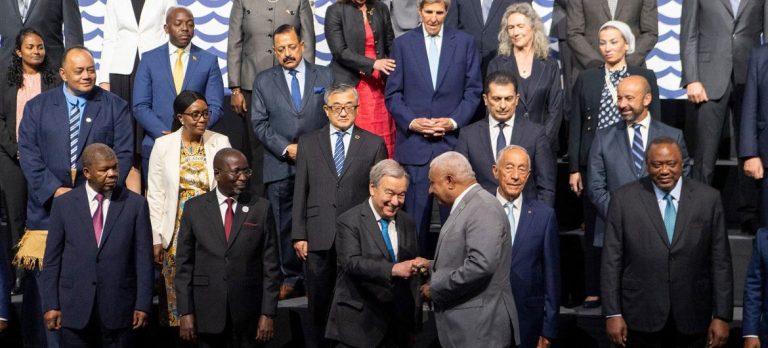
UN Secretary-General António Guterres today said that the world had too long
taken the ocean for granted and is now facing an “Ocean Emergency”.
In his speech to the UN Oceans Conference, which opened in Lisbon, Portugal, today, he
said it was time to act.
“We must turn the tide,“ Mr. Guterres said and pointed out that global heating is pushing
ocean temperatures to record levels, creating fiercer and more frequent storms, making the ocean more acidic, as well as raising sea levels.
“We cannot have a healthy planet without a healthy ocean. Our failure to care for the ocean
will have ripple effects across the entire 2030 Agenda,“ the Secretary General said referring
to the UN Sustainable Development Goals.
The second Oceans conference

The second UN Oceans Conference 27 June to 1 July will discuss issues such as plastic
pollution and over-fishing, as well as marine protected areas, seabed mining resources,
conservation and restoration of marine ecosystems.
To mobilize action, the Conference will seek to propel much needed science-based
innovative solutions aimed at starting a new chapter of global ocean action.
“Nearly 80 per cent of wastewater is discharged into the sea without treatment. And some 8 million tons of plastic waste enter the oceans ever year.
One mass of plastic in the Pacific is bigger than France. Without drastic action, this plastic
could outweigh all the fish in the oceans by 2050,“ the Secretary-General said.
The ocean is the main source of sustenance for more than one billion people and industries
relating to the ocean employ some 40 million people.
Six times more food

Mr. Guterres said that unsustainable fishing practices in the world are rampant and
over-fishing crippling fish stocks. However, he pointed out, where sound management has
been undertaken, fisheries have rebounded.
Mr. Guterres said that there has been progress recently on the management of the oceans,
including a forthcoming new treaty to address the global plastics crisis and a World Trade
Organization agreement on ending harmful fishery subsidies.
“Sustainable ocean management could help the ocean produce as much as six times more
food and generate 40 times more renewable energy than it currently does,“ the UN
Secretary-General told the opening of the Oceans Conference.
It is co-hosted by the Governments of Kenya and Portugal and the participants include 15
heads of state and 8 heads of government.